
09-02-2026 14:46
Anna KlosGoedemiddag, Op donderdag 5 februari vonden we ti

02-02-2026 21:46
Margot en Geert VullingsOn a barkless poplar branch, we found hairy discs

07-02-2026 20:30
 Robin Isaksson
Robin Isaksson
Hi!Anyone that have this one and can sen it to me?

25-01-2026 23:23
Hello! I found this species that resembles Delitsc

05-02-2026 15:07
Found on a fallen needle of Pinus halepensis, diam

05-02-2026 06:43
Stefan BlaserHello everybody, Any help on this one would be mu

18-08-2025 15:07
 Lothar Krieglsteiner
Lothar Krieglsteiner
.. 20.7.25, in subarctic habital. The liverwort i
Coprotus granuliformis 140112 60
Miguel Ãngel Ribes,
12-03-2014 20:57
 Good night
Good nightI had this collection like C. granuliformis, but it hasn't "paraphyses with strongly inflate apices" as said by Franceso Doveri in Fungi Fimicoli Italici, and apos are very, very small, (80-)90-130(-140) Âĩm, globose to subesferich at first, pulvinate at maturity. Spores are very small for C. leucopocillum; and C. trichosurus is a New Zealand species.
Asci clavate to saciforme, rounded at apex, with a short walk and lobed, with croziers, irregularly biseriate of ( 36.8 -) 37.6 - 53.1 ( -66.2 ) x ( 12.7 - ) 14.2 - 19.8 (-20.7 ) um, N = 17, Me = 46.2 x 16.5 Âĩm. Ellipsoidal, hyaline, smooth ascospores, rounded at the ends, ( 10.2 -) 11.1 - 12.4 ( -12.8 ) x (6.2 -) 6.6 - 7.8 (-8.1 ) um, Q = (1.4 -) 1.5-1.8 (-1.9 ), N = 61 , Me = 11.7 x 7.2 Âĩm ; Qe = 1.6 . Paraphyses filiform, septate, relatively thick-walled, slightly constricted in the septa, without pigment or lipid content, exceeding the height of the asci, not forked, straight, (1,3 -) 1.8-2 , 8 (-3.3 ) um, Me = 2.3 Âĩm wide at the penultimate cell and thickened up to (2.2 -) 2.4-4.3 (-5.0 ) um, Me = 3.3 Âĩm at the apex. Undifferentiated medullary excipulum. Ectal excipulum of globular-angular texture with cells (6.2 -) 7.4 - 11.1 (-13.1 ) x ( 4.9 -) 5.7 - 9.3 (-10.8 ) um , Q = (1.0 -) 1.1-1.5 (-1.9 ), N = 111 , Me = 9.1 x 7.4 Âĩm ; Qe = 1.3.
Thank you in advance.
Miguel Ãngel Ribes
Norbert Heine,
13-03-2014 22:01

Re : Coprotus granuliformis 140112 60
Dear Miguel,
I think you should compare with Coprotus trichosurus.
Why should this species not grow in Europe?
Ann Bell and J.W.Kimbrough described it, which is closely to C. granuliformis, in 1973.
It's a very small species with apothecia from 125 - 175 Âĩm!
Only your ascospores seems to be a little bit too broad.
Norbert
I think you should compare with Coprotus trichosurus.
Why should this species not grow in Europe?
Ann Bell and J.W.Kimbrough described it, which is closely to C. granuliformis, in 1973.
It's a very small species with apothecia from 125 - 175 Âĩm!
Only your ascospores seems to be a little bit too broad.
Norbert
Miguel Ãngel Ribes,
14-03-2014 01:22

Re : Coprotus granuliformis 140112 60
Wooooow
Dear Norbert
The nearest species for my collection is, as you say, C. trichosurus (I had read that paper), but I am affraid to asigned that name, because it is from New Zealand and were found on fecal pellets of an opossum. Really macro and micro fits more with C. trichosurus than C. granuliformis nor breviascus.
I do not know what to do, perhaps is it possible to ask Ann Bell or J.W.Kimbrough?
Thank you.
Dear Norbert
The nearest species for my collection is, as you say, C. trichosurus (I had read that paper), but I am affraid to asigned that name, because it is from New Zealand and were found on fecal pellets of an opossum. Really macro and micro fits more with C. trichosurus than C. granuliformis nor breviascus.
I do not know what to do, perhaps is it possible to ask Ann Bell or J.W.Kimbrough?
Thank you.
Michel Delpont,
14-03-2014 12:24

Re : Coprotus granuliformis 140112 60
Hello Miguel and Norbert.
Very interesting specie, but it is difficult to decide. F.Doveri indicates the top of paraphyses up to maximum 5 microns. We also find little C.granuliformis without pigment in the paraphyses.
Thank you Miguel and to Norbert for this paper.
Michel.
Very interesting specie, but it is difficult to decide. F.Doveri indicates the top of paraphyses up to maximum 5 microns. We also find little C.granuliformis without pigment in the paraphyses.
Thank you Miguel and to Norbert for this paper.
Michel.
Miguel Ãngel Ribes,
14-03-2014 12:42

Re : Coprotus granuliformis 140112 60
Hello Michel
Small collections of C. granuliformis without pigment in the paraphyses that you find, has strongly inflate apices and normal spore size for C. granuliformis?
Has anyone the mail of Ann Bell or J.W.Kimbrough?
Thank you.
Small collections of C. granuliformis without pigment in the paraphyses that you find, has strongly inflate apices and normal spore size for C. granuliformis?
Has anyone the mail of Ann Bell or J.W.Kimbrough?
Thank you.
Michel Delpont,
14-03-2014 14:06

Re : Coprotus granuliformis 140112 60
Yes, no differences in size to the spores and paraphyses.
Sorry, I do not have the adesses you ask.
Michel.
Sorry, I do not have the adesses you ask.
Michel.
Miguel Ãngel Ribes,
16-03-2014 22:00

Re : Coprotus granuliformis 140112 60
Thanks Norbert and Michel, very kind.
Best wishes.
Best wishes.

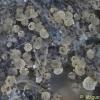
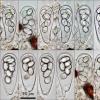
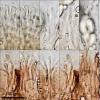
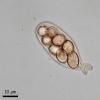
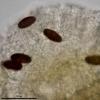
 Coprotus-trichosurus-Bell-amp-Kimbrough-1973-0001.pdf
Coprotus-trichosurus-Bell-amp-Kimbrough-1973-0001.pdf